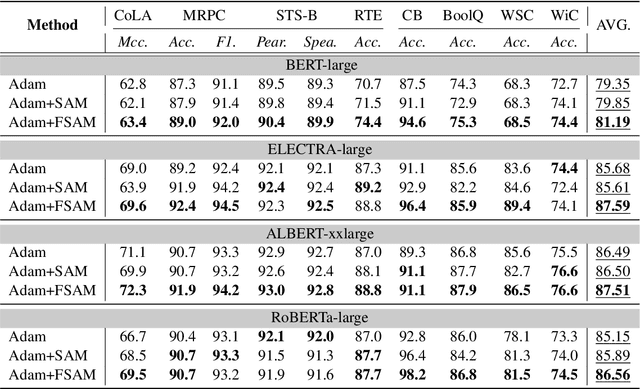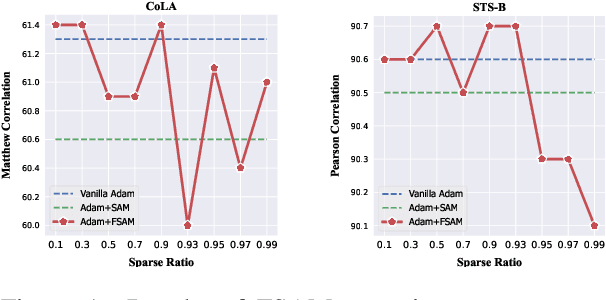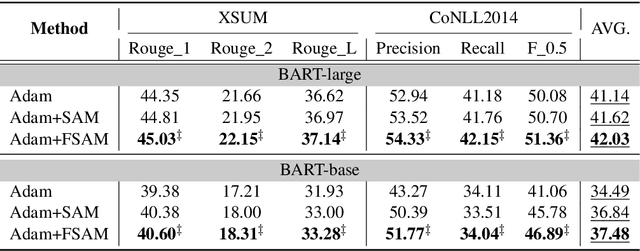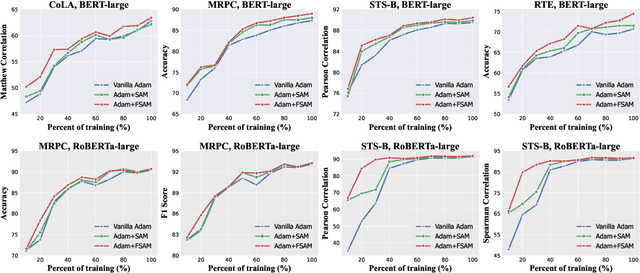Improving Sharpness-Aware Minimization with Fisher Mask for Better Generalization on Language Models
Paper and Code
Oct 11, 2022



Fine-tuning large pretrained language models on a limited training corpus usually suffers from poor generalization. Prior works show that the recently-proposed sharpness-aware minimization (SAM) optimization method can improve the model generalization. However, SAM adds a perturbation to each model parameter equally (but not all parameters contribute equally to the optimization of training), which we argue is sub-optimal and will lead to excessive computation. In this paper, we propose a novel optimization procedure, namely FSAM, which introduces a Fisher mask to improve the efficiency and performance of SAM. In short, instead of adding perturbation to all parameters, FSAM uses the Fisher information to identity the important parameters and formulates a Fisher mask to obtain the sparse perturbation, i.e., making the optimizer focus on these important parameters. Experiments on various tasks in GLUE and SuperGLUE benchmarks show that FSAM consistently outperforms the vanilla SAM by 0.67~1.98 average score among four different pretrained models. We also empirically show that FSAM works well in other complex scenarios, e.g., fine-tuning on generation tasks or limited training data. Encouragingly, when training data is limited, FSAM improves the SAM by a large margin, i.e., up to 15.1.
 Add to Chrome
Add to Chrome Add to Firefox
Add to Firefox Add to Edge
Add to Edge